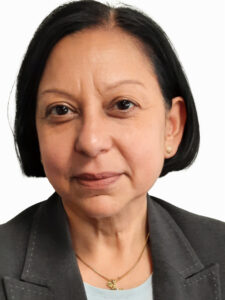One in five diagnosed with multiple sclerosis now under 30

One in five people diagnosed with multiple sclerosis (MS) in the UK are now under the age of 30, research from the MS Society reveals.1
There are 130,000 people living with MS in the UK and, in the last year alone, the charity estimates more than 1,250 people under 30 have been diagnosed.1 It is the most common progressive neurological condition in young people today.
Sarah-Jayne Roberts, 22, lives in Sheffield and was diagnosed with relapsing MS when she was just 20 years old. Her most severe relapse left her unable to walk.
The trainee nurse, who’s currently working on a Covid ward, says: “The hardest thing for me has been the mental health side of things. I had never been an anxious person before my MS, but I became quite depressed – I didn’t want to do anything. And thinking about the future became a real problem. I was like if this is what my life is going to be like – constantly worrying what tomorrow will bring – what’s the point? I didn’t want to be here anymore, I didn’t want to carry on.”
MS can be relentless, painful, and disabling. It’s also highly unpredictable and, when diagnosed, you do not know how your condition will develop. Approximately 85% of people with MS are diagnosed with the relapsing form, where symptoms come in sudden attacks then fade. Two in three of them will go on to develop secondary progressive MS, where there is no remission and you become increasingly disabled. 10-15% of people have primary progressive MS, where symptoms gradually get worse from the outset.
The MS Society’s Stop MS Appeal needs to raise £100 million to find new treatments for MS. By 2025, the charity hopes to be in the final stages of testing a range of treatments for everyone with the condition, so no one has to worry about it getting worse.*
Dr Emma Gray, Assistant Director of Research at the MS Society, said: “Today, most people will first experience MS symptoms in their 20s and 30s, when they’re working on their career, or perhaps thinking about starting a family. The condition is unpredictable and different for everyone, and that can make it hard to plan for the future.
“There are now over a dozen licensed treatments for people with the relapsing form of MS, and some emerging for early active progressive MS – but there is nothing to stop you becoming more disabled as your condition advances. Thankfully, we have never been closer to stopping MS, and with the discoveries being made right now, we believe treatments that slow or stop disability progression are a very real prospect.”
Sarah-Jayne continues: “Looking back now I have recovered to a certain extent and I’m glad I kept going. Health permitting, in two years’ time I’ll be a registered associate nurse, and I’d love to have children one day. Sometimes I still look at my future and worry what will happen, but with all the advances being made in research I’m more confident it might be OK and I could have a normal, active life where everything is possible for me.”
Ayad Marhoon, 23, is from Leeds and lives in London, where he studies Psychology at UCL. He was diagnosed with MS in 2019, but doctors are not sure what type of MS he has.
Ayad says: “Although I was diagnosed with relapsing MS there’s still an uncertainty about that because my condition seems to be progressing. I didn’t need a walking stick back then but now I do. I also get a lot of brain fog, which can be tough when studying. We had a phone call recently about exploring new medications, to see if any of them might work better, but I don’t know if they will.
“I’m still trying to get a better idea of how my future is going to look. I hope to work as a clinical psychologist one day, but with the rate I’m changing I don’t know what things will be like in five years’ time. If I didn’t have to worry about it getting worse that would be a massive weight off my shoulders.”
Sarah-Jayne and Ayad feature in a new photo series from the MS Society and award winning portrait photographer Spencer Murphy, which explores what life is like for young people with MS today. Subjects range from age 16-30, and include a trainee vicar, an expectant mum, and a former American football player amongst others.
Thanks to our amazing supporters, we’ve already secured over £54 million for MS research. With your help, we can reach our £100 million target and stop MS. For more information visit www.mssociety.org.uk/STOP-MS.
Text FUTURE8 to 70800 to donate £5 and support the Stop MS Appeal.




